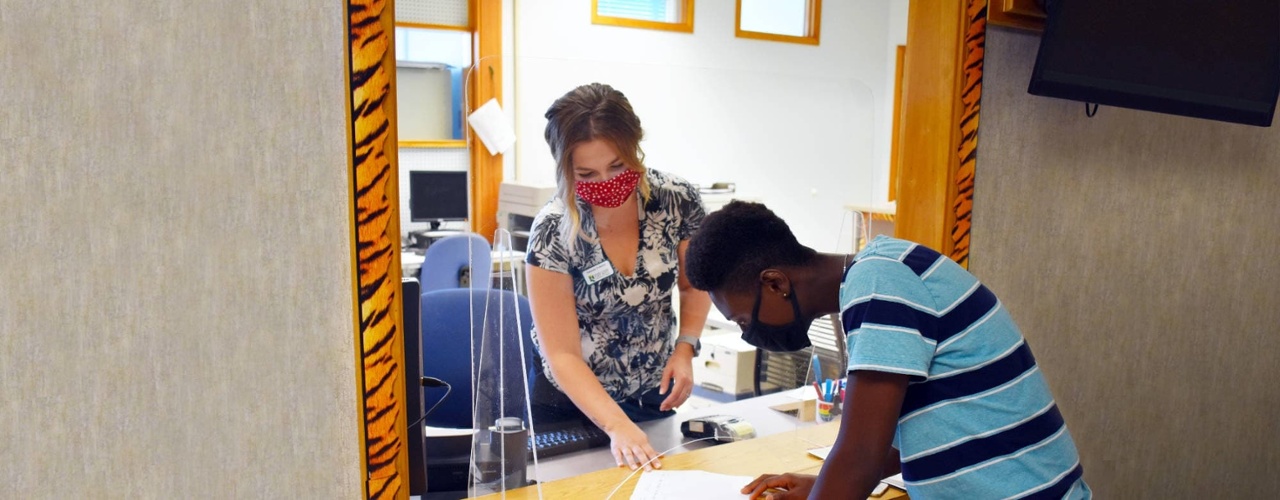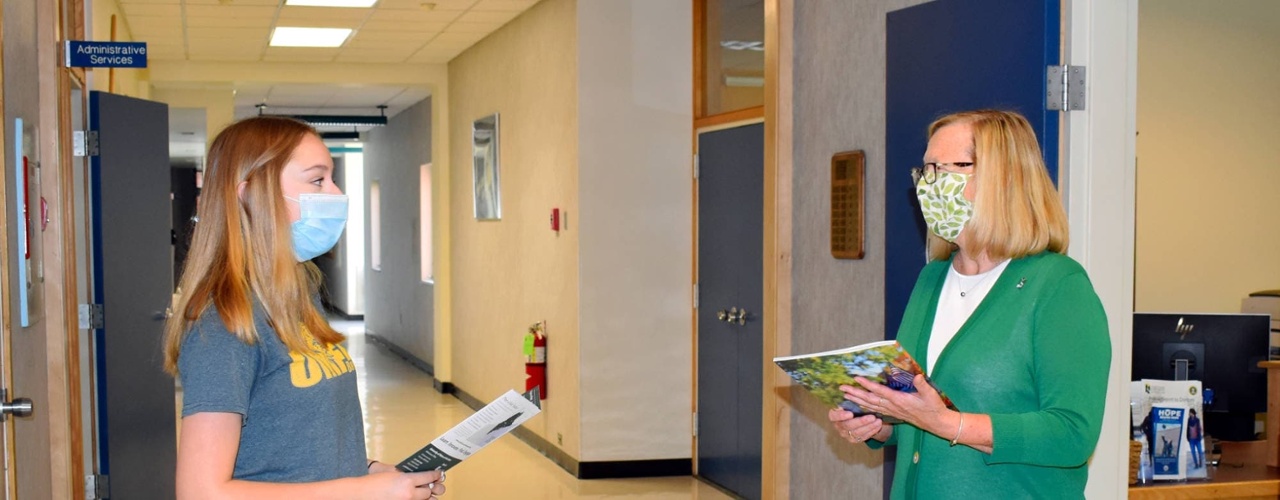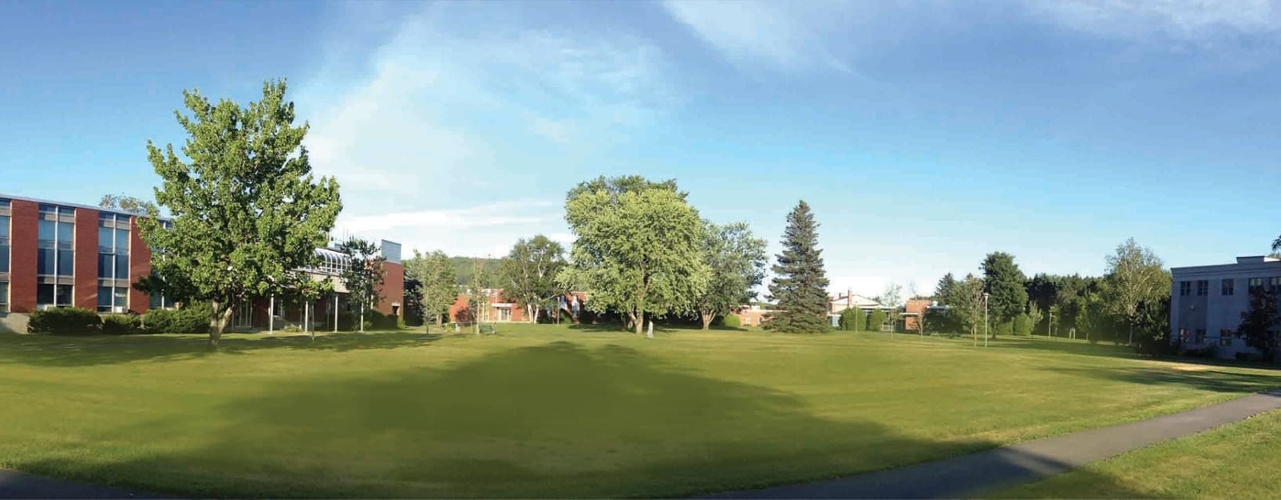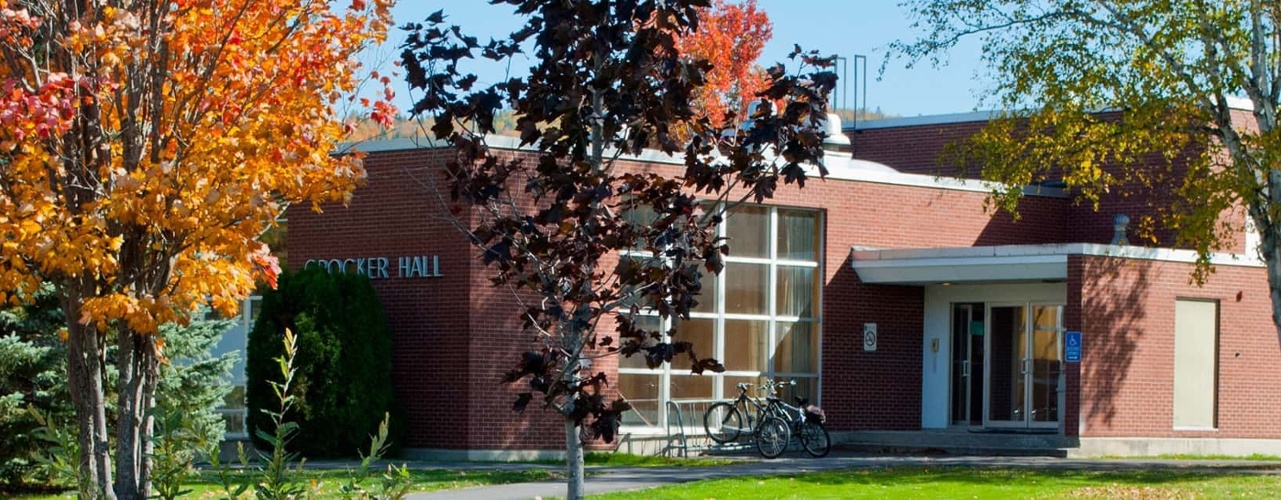
Latest News
UMFK physicist tells stories of Einstein
November 9, 2015
Note: this is an archived news release. As such, the information provided may no longer apply.
NR15080
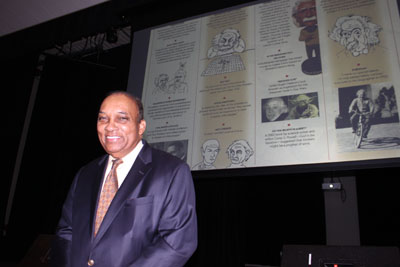
In the first of a series of lectures on Albert Einstein, a theoretical nuclear physicist introduced an audience to the life, times and ideas of one of the most influential thinkers of the modern era at the Fox Auditorium of the University of Maine at Fort Kent on November 5.
Dr. Robert M. Dixon, UMFK Vice President of Academic Affairs, began his presentation to an audience of 60 students, faculty, staff and members of the community by saying, “Albert Einstein is regarded as the preeminent scientist of the 20th Century, and maybe the preeminent scientist of all time.”
In this first of a series of lectures celebrating the 100th anniversary of the publication of Einstein's Special Theory of Relativity, Dixon described the challenges the famous Jewish scientist faced and also explained the theories Einstein discovered. Originally from Germany, Einstein was a world traveler and renounced his German citizenship when the Nazis came to power. In 1933 he became a resident of the United States and gained citizenship in 1935.
According to Dixon, when Einstein's ideas gained prominence and his popularity grew, he faced opposition and scrutiny from antisemitic individuals and organizations across the world and in the United States. Dixon said the Daughters of the American Revolution warned J. Edgar Hoover about the scientist and Hoover kept an extensive file on Einstein.
During the lecture, Dr. Dixon described how this prejudice was still active when he was studying physics. As an African American, Dixon said he received notes during his academic career from bigoted people warning him about “Jew and nigger theories”.
Dixon described the major contributions of Einstein during his “miracle year” of 1905 when the young scientist saw peer reviewed journals publish five of his papers, including the famous “On the Electrodynamics of Moving Bodies” which explained the Special Theory of Relativity.
The publications were important because Einstein was able to describe the structure and behavior of atomic particles and light in such a way that it solved problems that had perplexed scientists since Sir Isaac Newton's work in the 1700s.
Dixon said, “What Einstein did was resolve this disagreement.”
As the modern era manifested, scientists have confirmed Einstein's theories many times over by observing the behavior of light and gravity at the macro level of observing stars and galaxies to the subatomic level of the behavior of photons and other subatomic particle.
“These consequences are verified every day,” Dixon said.
Cheryl Carlesimo will present the second lecture, entitled “Einstein in Perspective Readings of Interviews with Scientists, Mathematicians, Colleagues, and Associates about Albert Einstein,” on Monday, November 9.
Ms. Carlesimo is partner and co-founder of Stone House Productions, where she handles project development and editorial direction for Stone House, maintaining contact with its clients, collaborators, publishers, writers, and talent.
She earned a bachelor of arts degree at Fordham University and a master's of fine arts degree the Yale School of Art. Carlesimo's first jobs in film were in Europe, where she assisted French New Wave director Eric Rohmer and German director Werner Schroeter in feature film production. She was also a freelance news footage researcher for the landmark HBO comedy show Not Necessarily the News. Cheryl is co-author of a children's book, "The Saturday Kid," with famed illustrator Ed Sorel.
Dr. David J. Batuski will present the third lecture on Thursday, December 3. He will speak on “Using General Relativity to Understand the Mysterious Dark Matter in the Universe.”
Dr. Batuski is professor of physics and astronomy at University of Maine. His research interests are in the following areas: observational cosmology; large-scale structure in the universe; dynamics of galaxy clusters and radio sources in poor galaxy clusters. In June, he conducted observations through a four-meter telescope at Cerro Tololo Observatory in Chile as part of UMO's optical large scale structure weak-gravitational lensing observing program.
Dr. Batuski earned a Ph.D. in Physics at University of New Mexico; a master's degree in astronautical engineering at Purdue University and a bachelor of science degree in engineering sciences at the United States Air Force Academy. He has been at UMO since 1976. Dr. Batuski is a member of the Maine Center for Research in STEM Education (RiSE Center).
Dr. Dixon returns to the celebration for the last lecture of the program. He will speak on “Einstein on Human and Civil Rights” on December 7.
For more information on the presentations, contact the University Relations and Alumni Affairs Office at 207-834-7557.
